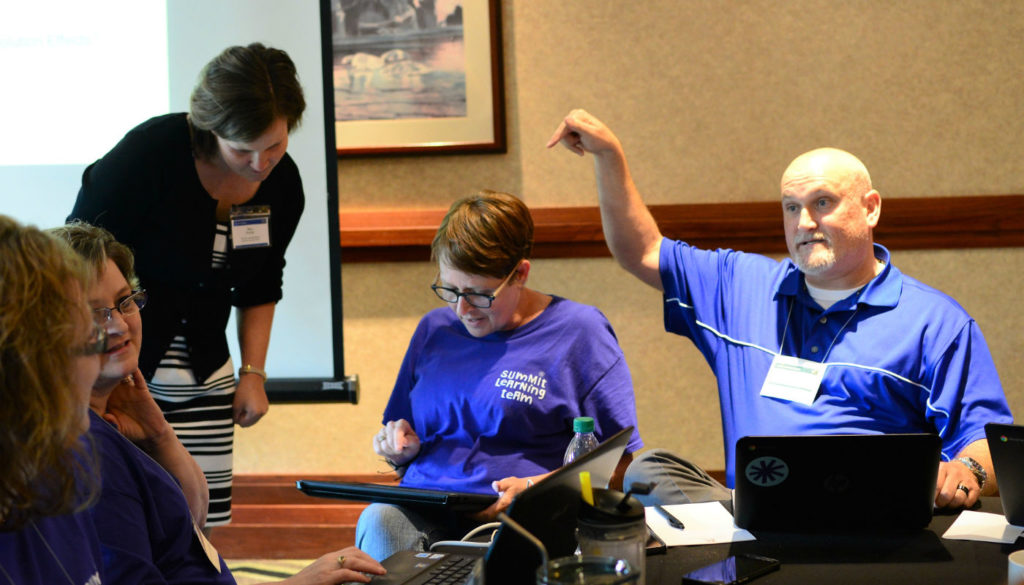
Even after 40 years of practice, Arkansas teacher Vicki Philipp says she’s willing to change.
“I’ve learned in life that you just have to be flexible,” says Philipp, 71, a social studies teacher at Cutter Morning Star High School, in Hot Springs, Arkansas.
Cutter Morning is one of 15 Arkansas schools to join the Summit Learning Program this year. Phillip and more than 300 teachers and leaders from Arkansas, Alabama and North Carolina traveled to Little Rock this week as part of Summit Learning’s summer training, held in 13 different cities across the country this month.
“You are all pioneers,” Nicholas Kim, Arkansas training facilitator and former executive director of Summit Tahoma, told the group the first day of training.
Committing to the Mindshift
All week, educators aligned on the vision of Summit Learning and, with the help of Summit mentors, dove deep into subject-specific projects to prepare for the school year.
Kim Hendon, assistant superintendent of Roanoke City Schools in Alabama, acts as a mentor for new schools joining the Summit Learning Program. Last year Handley Middle School in her district started using Summit Learning with their sixth graders and not only did ACT Aspire scores improve (28-point growth for writing from the previous year, for example) but engagement rose as well. Across Handley’s five grade levels (4-8), sixth graders in the Summit Learning Program had the least amount of discipline issues.
“This is because students are engaged in projects that give them voice and choice to decide on their learning experience,” Hendon says. “It’s definitely a mindshift. It’s hard. But when you’re doing what’s right for kids, you do it.”

‘Our Kids Need Different’
Nathan Sullivan, Cutter Morning Star High School Principal, says he joined the Summit Learning Program with a sense of urgency. Three-quarters of students enrolled in his district live below the poverty line. The district struggles with turnover, with five high school principals in the last six years.
“Change hurts. But if we are going to break 75% poverty then we need to start now,” Sullivan says.
In a team huddle, Sullivan asked his staff early in the week if they were bought in to Summit Learning. Although they recognized the difficulty of breaking the status quo, the teachers unanimously felt it was worth it.
“Our kids need different,” says Heather Hughes, library media specialist at Cutter-Morning Star.
Jann Gibson, Cutter Morning Star Elementary School Principal, says Summit Learning allows teachers to “multiply ourselves.” A middle school social studies and reading teacher for 23 years, Gibson says she always longed for a personalized learning system in her classroom but burned out trying to do it all herself.
The goal-setting aspect of the Summit Learning approach appealed to Gibson and Sullivan. “What they do in school is not connected to who they are,” Gibson says. “How can we give these kids a vision?”
For Alabama mentor Hendon, the answer to that question exists among the 300 attendees of this week’s training:
“The only magic bullet we have in education is the teacher.”
Gibson’s staff is on board. “The best part of the training week is seeing the enthusiasm of our teachers,” Gibson says. “They are in.”
Next week, hundreds more teachers and leaders will convene in Providence, Rhode Island; Pasadena, Texas; Arlington, Virginia; Newark, New Jersey; and Spokane, Washington to attend Summit Learning training.

